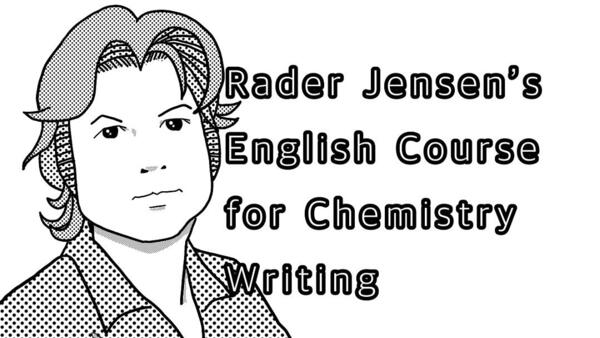CSJ Journals
[化学論文のための英語講座] 第7回:Pop Quiz 1
(English version is here.)
下線部について、どのような場合にどちらを使うかを答えてください。
(1) The literature has shown that the catalytic activity was/is strongly influenced by ligands.
「is」の場合
「catalytic activity」が配位子の影響を受けるという事が一般的で不変の事実である時に使います。
「was」の場合
過去に「catalytic activity」が配位子の影響を強く受けた事がある時に使います。現在の状況は述べていません 。「has shown」は今までに繰り返したことを述べますので「was」は少し不自然と考えられます。
(2) A previous report stated that under rigorously anhydrous conditions, the cyclobutane ring opening fails/failed to take place.
「failed」の場合
この文は特定の実験の結果を述べます。過去形の「failed」が過去の出来事を強調します。例えば、この反応は全合成検討の一段階です。話の一部にすぎません。
「fails」の場合
無水条件下ではこの開環反応が進行しないという事実を強調します。
(3) Generally, hydroxide is/was a strong nucleophile.
「is」の場合
水酸化物の性質を述べます。
「was」の場合
過去の特定の実験結果を述べます。現在の状況については述べていません。
(4) The resulting ester is/was cleanly reduced by DIBALH.
「was」の場合
これは過去に完成した出来事を述べます。出来事を強調する場合は「was」が適切です。
「is」の場合
不変の事実を述べます。反応性を強調する場合は「is」が適切です。
次回は時制をお休みして、クイズ形式で「前置詞の使い方」です。11月から時制に戻ります。
From the underlined portion, explain the meaning for each entry.
(1) The literature has shown that the catalytic activity was/is strongly influenced by ligands.
In the case of "is", catalytic activity is a general, unchanging phenomenon.
In the case of "was", ligands influenced activity in the past. Nothing is stated about the present. Because "has shown" expresses repeated action up to the present, "was" is somewhat unnatural.
(2) A previous report stated that under rigorously anhydrous conditions, the cyclobutane ring opening fails/failed to take place.
This sentence presents the results of a specific experiment. The preterite "failed" emphasizes a past event, for example, this reaction is one step of a total synthesis investigation. It is only one part of the story.
In the case of "fails", the reaction itself is stressed. In absence of moisture, the reaction does not proceed. This particular result is important.
(3) Generally, hydroxide is/was a strong nucleophile.
In the case of "is", the characteristics of hydroxide are emphasized.
On the other hand, "was" expresses the results of a specific experiment. Nothing is said about the current situation.
(4) The resulting ester is/was cleanly reduced by DIBALH.
Using "was" expresses the result of a completed event in the past. If the emphasis is on the event, then "was" is appropriate.
If the emphasis is on the resulting unchanging information, "is" is appropriate.
Tenses will be take a break, we will post "preposition use" with a quiz at next time. Tenses will be resumed at November 2021.
